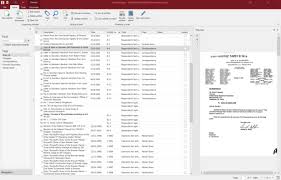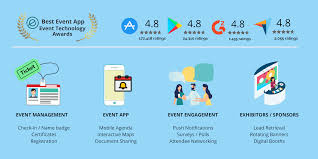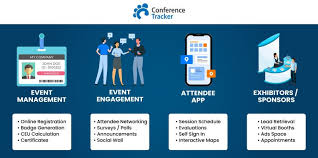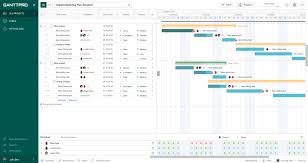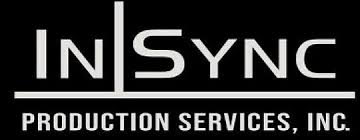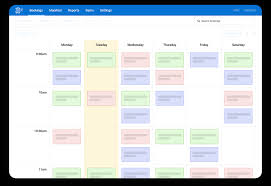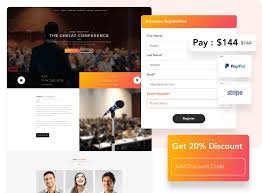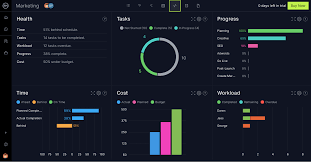The Role of an Exhibit Manager in Event Planning
Exhibit managers play a crucial role in the success of any event or trade show. They are responsible for overseeing all aspects of the exhibit, from planning and design to execution and evaluation.
One of the key responsibilities of an exhibit manager is to work closely with clients to understand their goals and objectives for the event. This involves discussing the target audience, budget constraints, and desired outcomes to create a customized exhibit experience.
Once the objectives are established, the exhibit manager collaborates with designers, builders, and vendors to bring the vision to life. They oversee every detail of the exhibit, ensuring that it aligns with the client’s brand identity and messaging.
During the event, exhibit managers are on-site to manage logistics, troubleshoot any issues that arise, and ensure that everything runs smoothly. They also interact with attendees, answer questions, and gather feedback for post-event evaluation.
After the event concludes, exhibit managers analyze data and feedback to measure the success of the exhibit. This information is used to make improvements for future events and refine strategies for maximum impact.
In conclusion, exhibit managers are essential players in event planning who bring creativity, organization, and strategic thinking to create memorable experiences for both clients and attendees.
Top 6 Benefits of Hiring an Exhibit Manager for Your Event
- Exhibit managers oversee all aspects of event planning and execution, ensuring a seamless experience for clients.
- They work closely with clients to understand their goals and objectives, creating customized exhibit solutions.
- Exhibit managers collaborate with designers, builders, and vendors to bring the client’s vision to life.
- They are on-site during events to manage logistics, troubleshoot issues, and ensure everything runs smoothly.
- Exhibit managers interact with attendees, answer questions, and gather feedback for post-event evaluation.
- After events, they analyze data and feedback to measure success and make improvements for future exhibits.
Challenges Faced by Exhibit Managers: High Stress, Long Hours, and Multitasking
- High stress levels due to tight deadlines and last-minute changes
- Long working hours, including evenings and weekends during events
- Constant need to juggle multiple tasks and responsibilities simultaneously
Exhibit managers oversee all aspects of event planning and execution, ensuring a seamless experience for clients.
Exhibit managers serve as the linchpin in event planning and execution, meticulously overseeing every aspect to guarantee a flawless experience for clients. From conceptualization to implementation, they navigate the complexities of logistics, design, and communication with precision and expertise. By orchestrating all elements of an event seamlessly, exhibit managers not only alleviate stress for clients but also ensure that their vision is brought to life in a cohesive and impactful manner.
They work closely with clients to understand their goals and objectives, creating customized exhibit solutions.
Exhibit managers excel in building strong client relationships by closely collaborating with them to grasp their specific goals and objectives. Through this personalized approach, exhibit managers can tailor customized exhibit solutions that not only meet but exceed the client’s expectations. By understanding the client’s unique needs and vision, exhibit managers ensure that every detail of the exhibit aligns with the client’s brand identity and messaging, resulting in a truly impactful and successful event experience.
Exhibit managers collaborate with designers, builders, and vendors to bring the client’s vision to life.
Exhibit managers serve as the linchpin in event planning by collaborating with designers, builders, and vendors to transform the client’s vision into a tangible reality. Their ability to bridge the gap between creative concepts and practical execution ensures that every detail of the exhibit aligns with the client’s brand identity and messaging. By fostering effective communication and coordination among all stakeholders, exhibit managers play a vital role in delivering immersive and impactful experiences that leave a lasting impression on attendees.
They are on-site during events to manage logistics, troubleshoot issues, and ensure everything runs smoothly.
Exhibit managers provide invaluable support during events by being present on-site to oversee logistics, address any issues that may arise, and ensure the seamless execution of all aspects of the exhibit. Their proactive approach to troubleshooting helps maintain a high level of professionalism and efficiency, ultimately contributing to a successful and well-organized event experience for both clients and attendees.
Exhibit managers interact with attendees, answer questions, and gather feedback for post-event evaluation.
Exhibit managers serve as the frontline representatives of an event, engaging with attendees, addressing inquiries, and collecting valuable feedback for post-event assessment. Their ability to interact effectively with visitors not only enhances the attendee experience but also provides insights into the success of the exhibit. By actively listening to questions and comments, exhibit managers can identify areas for improvement and gather valuable data that informs future event strategies. This proactive engagement fosters a positive relationship between the event and its audience, ultimately contributing to the overall success of the exhibit.
After events, they analyze data and feedback to measure success and make improvements for future exhibits.
After events, exhibit managers play a crucial role in analyzing data and feedback to measure the success of the exhibit. By carefully examining metrics such as attendee engagement, leads generated, and overall impact, they can identify strengths and areas for improvement. This data-driven approach allows exhibit managers to make informed decisions and implement strategic changes for future exhibits, ensuring continuous growth and effectiveness in achieving client objectives.
High stress levels due to tight deadlines and last-minute changes
Exhibit managers often face high stress levels due to tight deadlines and last-minute changes in event planning. The pressure to deliver a flawless exhibit within a limited timeframe can be overwhelming, especially when unexpected alterations need to be made at the eleventh hour. Managing these challenges requires quick thinking, adaptability, and the ability to stay composed under pressure. Despite the demanding nature of the role, exhibit managers must remain focused on ensuring that the exhibit meets the client’s expectations and achieves its objectives, all while navigating the obstacles that come with time constraints and unforeseen modifications.
Long working hours, including evenings and weekends during events
One significant drawback of being an exhibit manager is the long working hours, which often extend into evenings and weekends, especially during events. The demanding nature of the job requires exhibit managers to be on-site for extended periods, overseeing logistics, troubleshooting issues, and ensuring the smooth operation of the exhibit. This can lead to a lack of work-life balance and personal time, as well as increased stress and fatigue from working irregular hours. The dedication required to excel in this role can take a toll on exhibit managers’ well-being and relationships outside of work.
Constant need to juggle multiple tasks and responsibilities simultaneously
One significant challenge faced by exhibit managers is the constant need to juggle multiple tasks and responsibilities simultaneously. From coordinating with clients to managing vendors, overseeing design elements, handling logistics, and ensuring on-site execution, exhibit managers must stay organized and focused amidst a myriad of moving parts. This balancing act can be demanding and stressful, requiring strong time management skills and the ability to prioritize effectively to ensure that all aspects of the exhibit come together seamlessly.

